
2015
The following UTeach classes were taught during Spring 2015:

Adrianna Burton
Majors: English, Film, & Media Studies
D&D: Roleplay, Characterization, and Representation
Biography:
Hello to all! My name is Yara Bojorquez, I am a senior Political Science and International Studies double major and I cannot wait to guide you through the “Psychedelic Humans” seminar as part of UCI’s UTeach program! As a fellow undergraduate, it is my privilege to introduce my peers to the world of psychedelic research. A “substance use” researcher and honor’s student investigating “cognitive liberty” myself, the current limitations and inconsistencies apparent in the existing literature regarding these topics have motivated me to embark on this educational pursuit. The specific knowledge in international law and global conflict I have attained during my time at UCI has equipped me with the tools to take a critical look at the domestic War on Drugs, its subjects, and its effects on individual consciousness and society-at-large. It is with this insight, an enthusiasm for the natural world, a responsibility to progress the academic archives, and (hopefully) your collaboration that I humbly embark on this mind-expanding journey.
Course Description: As agents of the natural world, psychoactive substances impact humans on psychological, physiological, and social levels of existence. With the increasing decriminalization of federally illicit drugs, it is pertinent for the average citizen to understand the impact of psychoactive substances on society. This seminar is designed to increase a student’s awareness of psychedelic substances and their effects on the liberal individual and two major democratic societies. We will discuss the origins, cultural significance, and change through time of psychoactive plant use in these societies to distinguish their potential influence on present-day Americans. The rationale behind the War on Drugs and domestic drug policy will be reviewed accordingly.
Enrollment Information:
Time: TBC
Place: Online
Course Code: 87637
Faculty Mentor: Caesar Sereseres
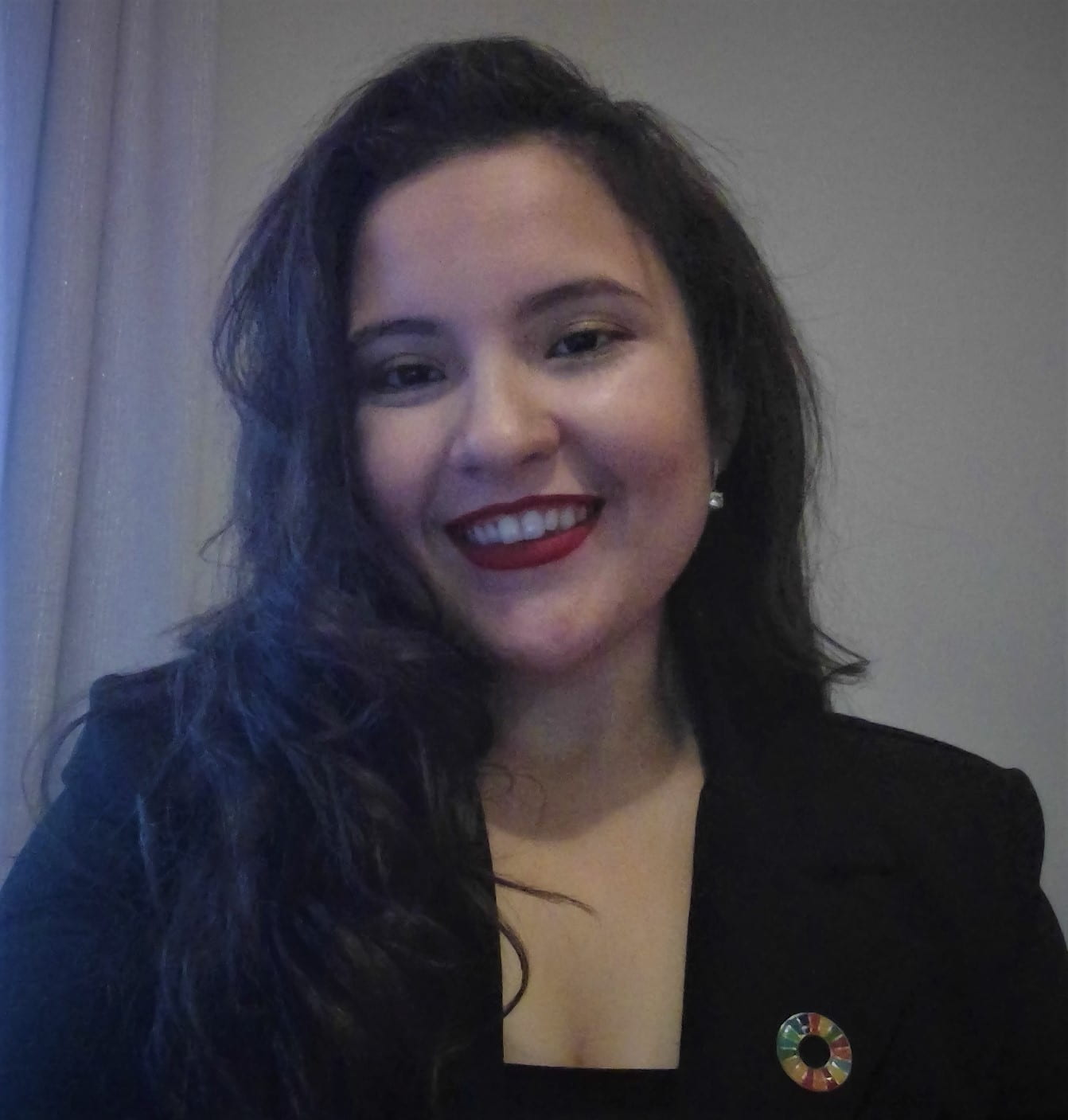
Yara Bojorquez
Majors: Political Science, International Studies
Psychedelic Humans and the War on Consciousness
Hello to all! My name is Yara Bojorquez, I am a senior Political Science and International Studies double major and I cannot wait to guide you through the “Psychedelic Humans” seminar as part of UCI’s UTeach program! As a fellow undergraduate, it is my privilege to introduce my peers to the world of psychedelic research. A “substance use” researcher and honor’s student investigating “cognitive liberty” myself, the current limitations and inconsistencies apparent in the existing literature regarding these topics have motivated me to embark on this educational pursuit. The specific knowledge in international law and global conflict I have attained during my time at UCI has equipped me with the tools to take a critical look at the domestic War on Drugs, its subjects, and its effects on individual consciousness and society-at-large. It is with this insight, an enthusiasm for the natural world, a responsibility to progress the academic archives, and (hopefully) your collaboration that I humbly embark on this mind-expanding journey.
Course Description: As agents of the natural world, psychoactive substances impact humans on psychological, physiological, and social levels of existence. With the increasing decriminalization of federally illicit drugs, it is pertinent for the average citizen to understand the impact of psychoactive substances on society. This seminar is designed to increase a student’s awareness of psychedelic substances and their effects on the liberal individual and two major democratic societies. We will discuss the origins, cultural significance, and change through time of psychoactive plant use in these societies to distinguish their potential influence on present-day Americans. The rationale behind the War on Drugs and domestic drug policy will be reviewed accordingly.
Enrollment Information:
Time: TBC
Place: Online
Course Code: 87637
Faculty Mentor: Caesar Sereseres
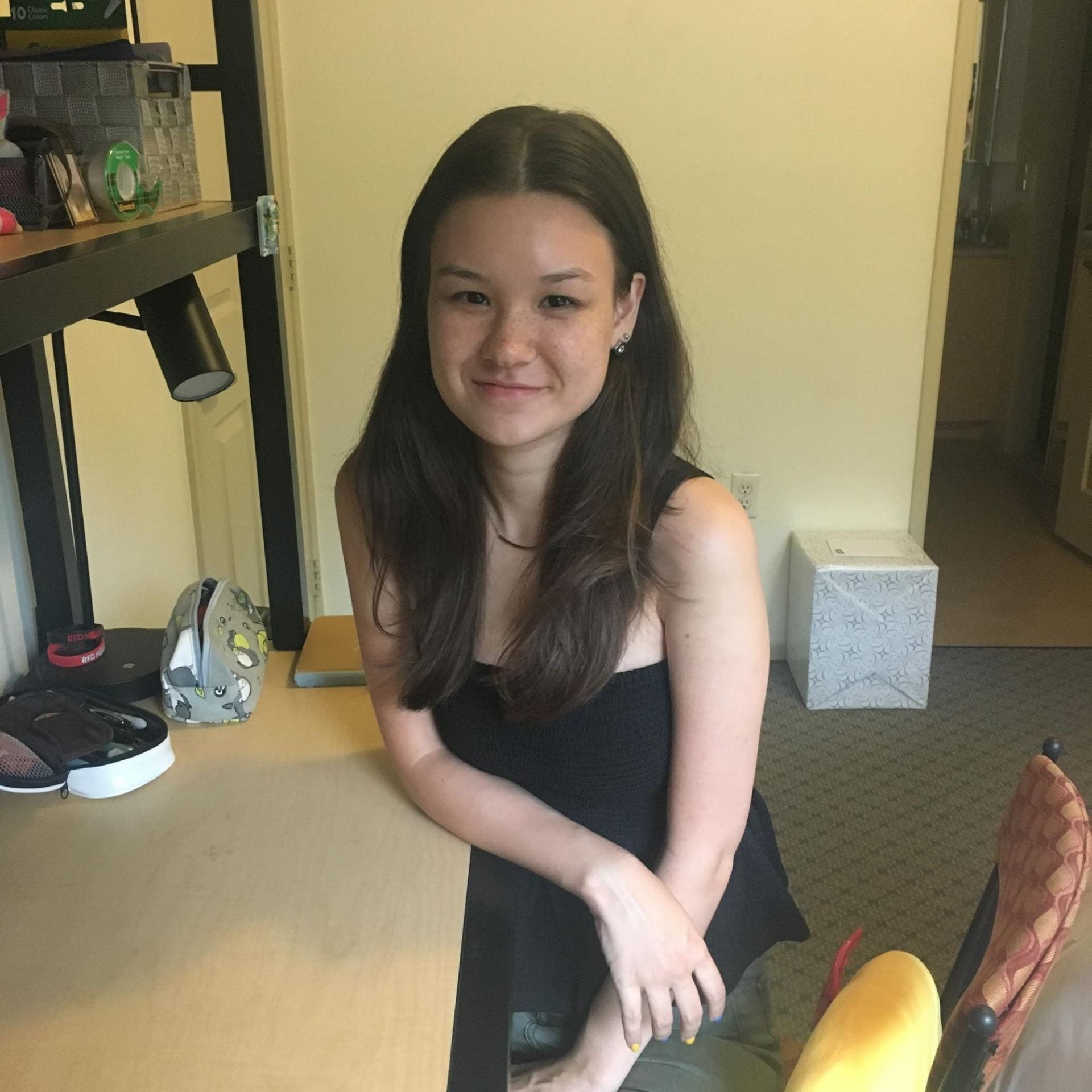
Katrina Hough
Major: Neurobiology, Enligsh
Heartbreak Narratives: Broken Heart in Poerty&Lit
Hello All!
My name is Katrina Hough and I am a fifth year double major in neurobiology and English. You might think those are two majors on the opposite ends of the spectrum but I like to think of them as close together in discovering and analyzing the human condition. My likes include reading, attempting to cook/bake new recipes, and super soft blankets. My dislikes include nuts (because I’m allergic, I went through a phase in middle school where I was totally bitter about never having peanut butter, but I’ve moved on, clearly), loud noises, and anything that requires body coordination.
Course Description:
In this course, students will be exposed to different pieces of literature centering on the theme of heartbreak. The class encompasses a wide range of pieces including works by Sylvia Plath, Frank O’Hara, and Danez Smith. Students will engage in close reading practices and are encouraged to think about the effect of these narratives on their own feelings and lives. Subjects of grief coincide with other topics like love, joy, mental illness, race, and feminism. Through discussion and written assignments, students will be given an opportunity to express their visceral reactions to a piece and work alongside their peers in analysis.
Enrollment Information:
Time: TBC
Place: Online
Course Code: 87631
Faculty Mentor: Virginia Jackson
Back to Top

Alessandria Pai
Majors: Biomedical Engineering: Premed, Classics
What are Lasers?
Biography:
Hey all! I’m Alessandria (Aless), a fifth-year double major in Biomedical Engineering: Premed and Classics. I have a very wide variety of interests, including reading novels, writing short stories, and singing. Another of my favorite pastimes is learning languages: so far, I’m working on Spanish, Italian, Attic Greek, and Russian! On other days I might be reading through history articles or getting knee deep into quantum mechanics. Or, I might just be a couch potato and binge on manga. When I’m with my friends, we enjoy putting together charcuterie boards and watching musicals or just coasting for good places to eat. As you can see, I’m a very curious person and tend to dip my fingers into every topic I can!
Course Description:
“What Are Lasers?” is a course for students to expand their knowledge on lasers. Lasers are used everywhere from daily life to research and medicine to the battlefield. However, the science behind lasers can be dramatically different from how lasers are commonly portrayed in literature and media. The course will include several topics regarding lasers, including the science behind how they work, the history of lasers, current positive and negative uses of lasers, and the presence of lasers in literature and media. Students will also learn to research and explore the wide world of lasers on their own, including fascinating topics such as laser cooling, optical tweezers, and approaches to nuclear fusion.
Enrollment Information:
Time: TBC
Place: Online
Course Code: 87635
Faculty Mentor: Bernard Choi
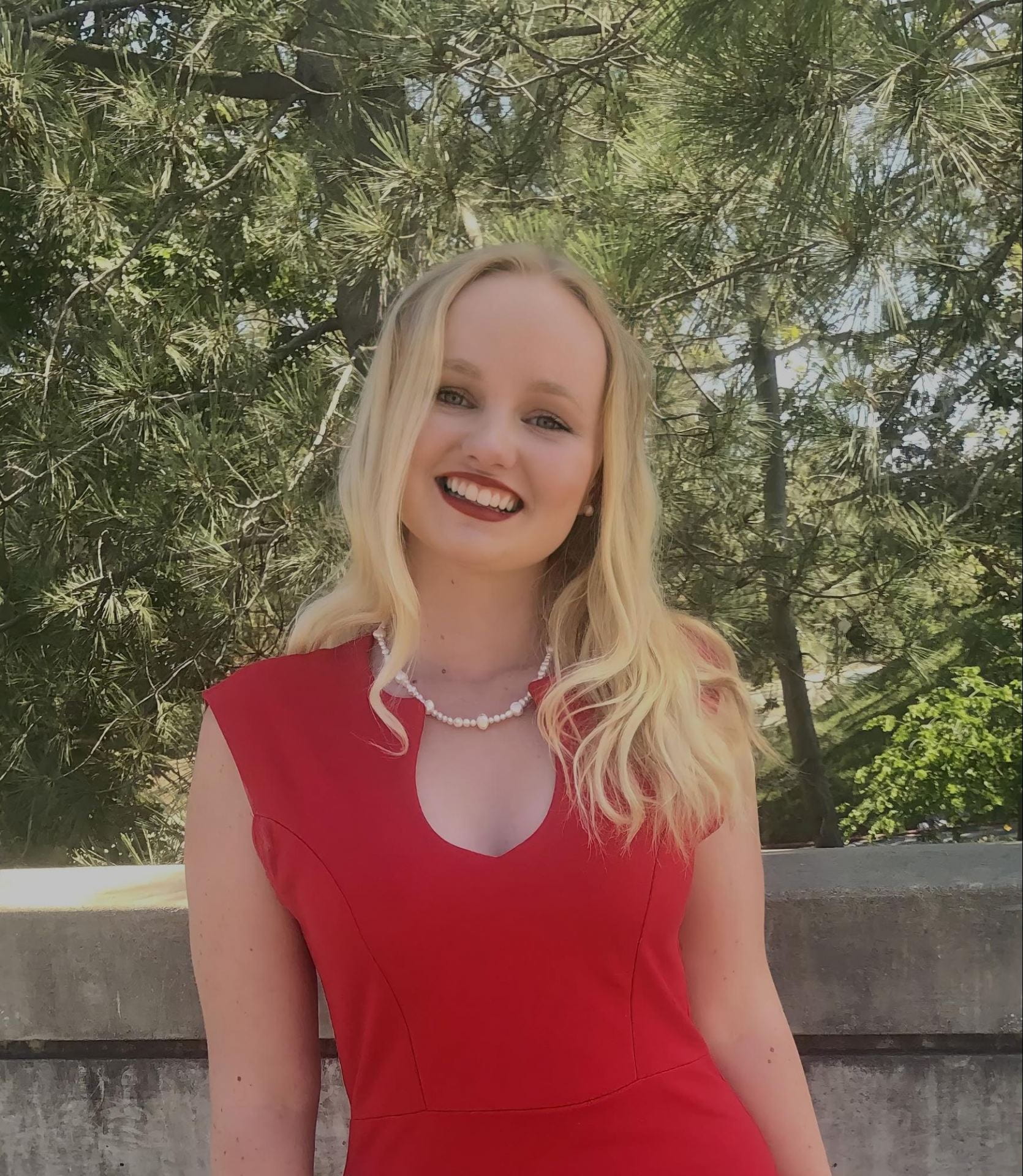
Cassidy Contreras-Macik
Major: English
The Reality of the Dream
Biography:
Hey! My name is Cassidy and I am a fourth year English major. I was born and raised in Orange County; living in both Orange and Santa Ana throughout my youth. I decided to study English because I firmly believe in the capturing of the human experience that is within literature. After I graduate from UCI, I want to move into teaching at the high school level. My goal in life is to help people and make a positive impact on those I meet and I figure: “What better way to do that than to be an educator that is dedicated to the intellectual and personal growth of our youth?” In my free time, you’ll see me reading poetry, writing, laughing while watching 90 Day Fiancé and other trash reality T.V. shows with my mom, hanging out with friends, doing self-care, or at a taquería because tacos are the love of my life.
Course Description:
The American Dream. Many people have heard of it and many define it in different ways. It is, however, in most cases, suggesting a certain quality of life that is made possible for those living in the United States. While, in American education, we often talk about the American Dream at least once but when do we ever talk about American dreams that stem from oppression? In this course, we will begin by spending a day in which we discuss the canonicalized term “The American Dream” and its limited representations and spend the remainder of the class studying narratives that are often not brought into the light. Focusing on literature that uplifts the American voices and experiences of immigrants, LGBTQIA+ individuals, women, and more, we will be looking at the parts of American life that go underrepresented when we address the American Dream, quality of life and the dreams that stem from it as a result.
Enrollment Information:
Time: TBC
Place: Online
Course Code: 87641
Faculty Mentor: Theodore Martin
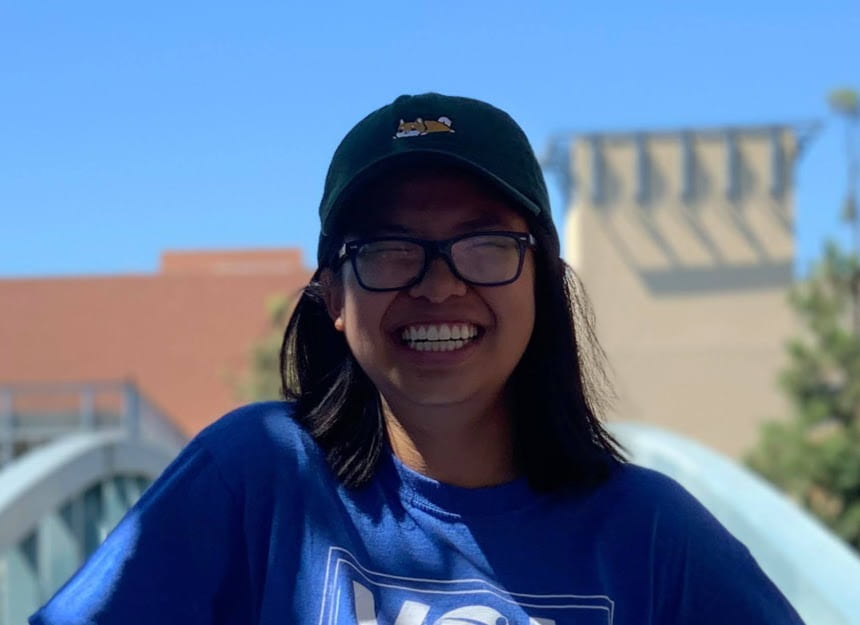
Chloe Low
Majors: English, Literary Journalism
Worldbuilding in Indie Video Games
Biography:
Hello folks, and welcome to Wordbuilding in Indie Video Games!! I’m Chloe and I’m an English and Literary Journalism double major with a minor in Creative Writing at UCI. When I’m not scavenging for new games to play, you can find me working at Langson Library or writing poetry. While my studies do not center around video games, I’ve loved them my whole life and I think they are awesomely unique medium that has the potential to teach everyone something new about the way they view the world. In this course, my goal is to introduce you to a variety of independently made games that are thought provoking, comforting, and fun, and then critically analyze why that is. Don’t feel like you need to have experience playing video games before this taking class, I hope we can learn and grow while exploring indie video games together!
Course Description:
This seminar serves as an introduction to worldbuilding through its application in indie video games. In this course, worldbuilding will be defined as the construction of an imaginary world. We will engage in the world building techniques of video games, including game mechanics, storytelling, sounds, and visuals. We will be able to identify elements of worldbuilding in an academic lens and articulate critical perspectives on their effectiveness in indie video games. The goal of the course is to develop the language to describe the mechanics of indie video games effectively, illuminate understanding of worldbuilding as a methodology, and have the opportunity to engage in a variety of indie video games. No previous experience with video games or video game theory is necessary
Enrollment Information:
Time: 1-1:50 PM PST on Fridays
Place: Online
Course Code: 87640
Faculty Mentor: Anton Soderman
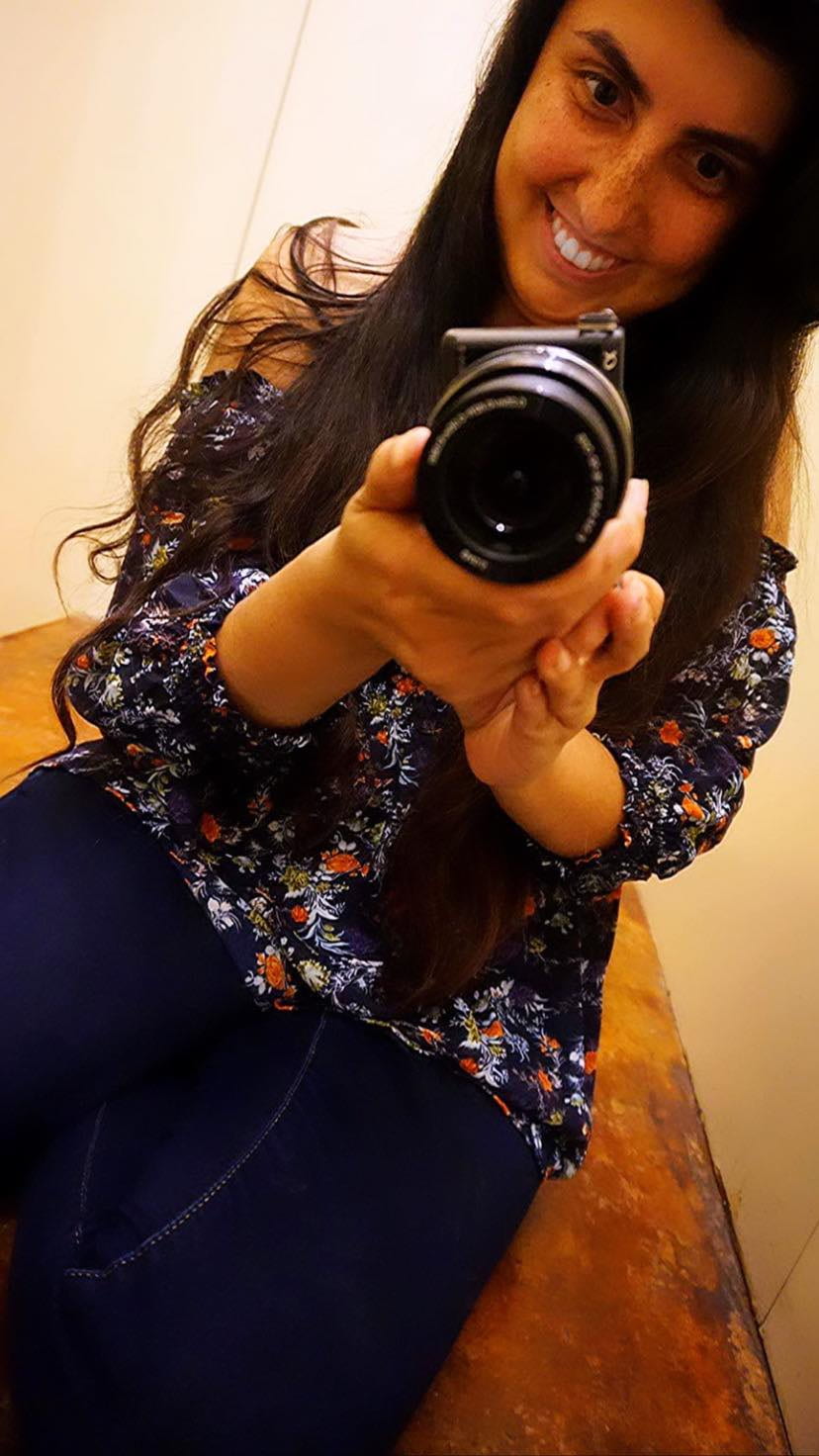
Victoria Hernandez
Majors: English With Specialization In Education
The Evolution of Feminism In Film
Biography:
Hello, hello! My name is Victoria Hernandez, but most of my friends call me Tori. I am a fourth-year English major with a specialization for Future Teachers. I aspire to become a high school teacher because I want to help students prepare for their future, encourage them to pursue their dreams, and show them that anything is possible if you believe in yourself. I am currently the social media coordinator for the English Majors’ Association and one of the writer contributors for Her Campus— both clubs mean a lot to me because they are my outlets to express unlimited creativity and work alongside many other talented students. There are no words to describe how fortunate I feel to meet so many inspirational people during my UCI experience (in-person and remotely). So let’s continue this momentum of greatness by creating some more fun memories of our own during this class. I also have a passion for writing slam poetry, writing song lyrics, writing film reviews, watching horror films, listening to pop music, attending television show tapings, and creating my own sense of style in film editing. I am obsessed with binge watching many Netflix shows, or the entire series of Game Of Thrones. I am also a HUGE DISNEY FANATIC. If it is at all possible to live in the Cinderella castle at Disneyland with unlimited churros then sign me up.
More importantly, I sincerely hope that this class will inspire you, encourage you to watch films differently, and progress the movement of female empowerment. Sometimes the best feeling ever is to make people smile, learn from others, and try to make someone’s day shine brighter because it’s a great feeling to spread kindness wherever you go. Lastly, you’ll definitely hear me playing some songs from The Greatest Showman, classic Disney anthems, or anything that has to do with the concept of self love during the beginning of this class for the Spring quarter!
Course Description:
This course will explore the development of working women roles in film from the early twentieth century to the present day. How are women’s roles portrayed on the big screen from the early twentieth century to the present day? This course is going to examine the different working environments of women such as the office, the household, the factory, the classroom, and the music industry. After streaming the films before in-class discussion we are going to ask ourselves what were the biggest challenges for women and think about the ways in which their roles gradually changed overtime. For example, for some homework assignments you will be viewing the films entitled Thelma and Louise directed by Ridley Scott, and North Country directed by Niki Caro, Freedom Writers directed by Richard LaGravenese, and Selena directed by Gregory Nava. Then during class discussions we will learn the elements of how to do a film analysis, and how their biggest challenges within their working environments impact each female role. How do these artistic details in film portray the female role? Throughout the course, we will also compare and contrast the female roles, their biggest social issues like gender inequality, and how film captures their diverse working positions. We will, also consider how the revolution of women in films themselves and how they were presented from back then to the present day. The main goal of this class is to learn a brief overview of feminist history, examine how working environements impact the female roles, and also go into depth as a class about how we watch and write about film itself. In these selected films, we are going to learn how to evaluate the behind the scenes features of artististic cinematography, and how to study the powerful notions of symbolism during a scene analysis. This class is going to include a few screenings, very short passage readings, short journal entries, a short team discussion post, uplifting discussions, and overall learning how to utilize film as a visual tool to view the feminism movement in a new light.
Please be advised that some of these films featured in this class may contain scenes of explicit sexual or violent nature. In addition, I will create a google drive that will provide all films, short readings, and scenes throughout the entire course.
Enrollment Information:
Time: TBC
Place: Online
Course Code: 87639
Faculty Mentor: Joseph Jeon

Vanessa Nicole Torres
Majors: Chicana/o/x Latina/o/x Studies
Daydreaming: The Undocumented Immigrant Reality
Biography:
Hello folks, I am Vanessa Nicole Torres and my pronouns are She/Her/Ella. I am a fourth-year first-generation student majoring in Chicana/o/x Latina/o/x Studies and double minoring in Latin American Studies and Literary Journalism.
I got involved in UTeach after deciding I want a career as a Professor to able to teach, learn, research, and create. Outside of school, I am a BIPOC makeup & arts lover, consumer, supporter, and creator. I enjoy recreating makeup looks as well as creating poetry, long-form narratives, paintings, and sketches so let your creativity soar in my course.
Before UTeach, I pursued UROP research inspired by my academic pursuits and experiences as a Latinx woman of color who worked as a TRIO Tutor Mentor for Math and Science Upward Bound high school students. As a UROP Honorary Fellow, I had the opportunity to present at on campus events, at the 2019 Imagining America National Gathering and at the virtual 2020 Johns Hopkins Richard Macksey National Undergraduate Humanities Research Symposium.
This past year I have been the School of Social Science’s FGFQ Challenge program Administrative Assistant, with hopes to help shape and build the community that will further the journey of more first-generation BIPOC students. The FGFQ program and team is a place for everyone to grow as academics and take control of their academic trajectory from the first quarter of their undergraduate experiences at UC Irvine.
Course Description:
This course is an introductory seminar that analyzes undocumented immigrant youth experiences in the United States. By tracing various forms of media documentation to their intersectional experiences, we will explore immigration and undocumented policies, mixed-status family dynamics, gender and sexuality, activism, and reform. Assigned readings will draw from interdisciplinary, Queer immigrant essays, or testimonials/testimonios, and media (e.g. arts, journalism, books, videos, memes, etc), to introduce students to past and contemporary creative movements on undocumented and/or queer youth. These materials will inform our zoom discussions by taking into consideration how activism has played a highly visible role in the lives of undocumented immigrant populations and their desire for reform. Gaining a deeper understanding of the complex intersectionality of undocumented youth in United States history and in the present moment will help students meet their own needs or that of undocumented students and families they will encounter on campus and beyond.
Enrollment Information:
Time: TBC
Place: Online
Course Code: 87636
Faculty Mentor: Anita Casavantes Bradford
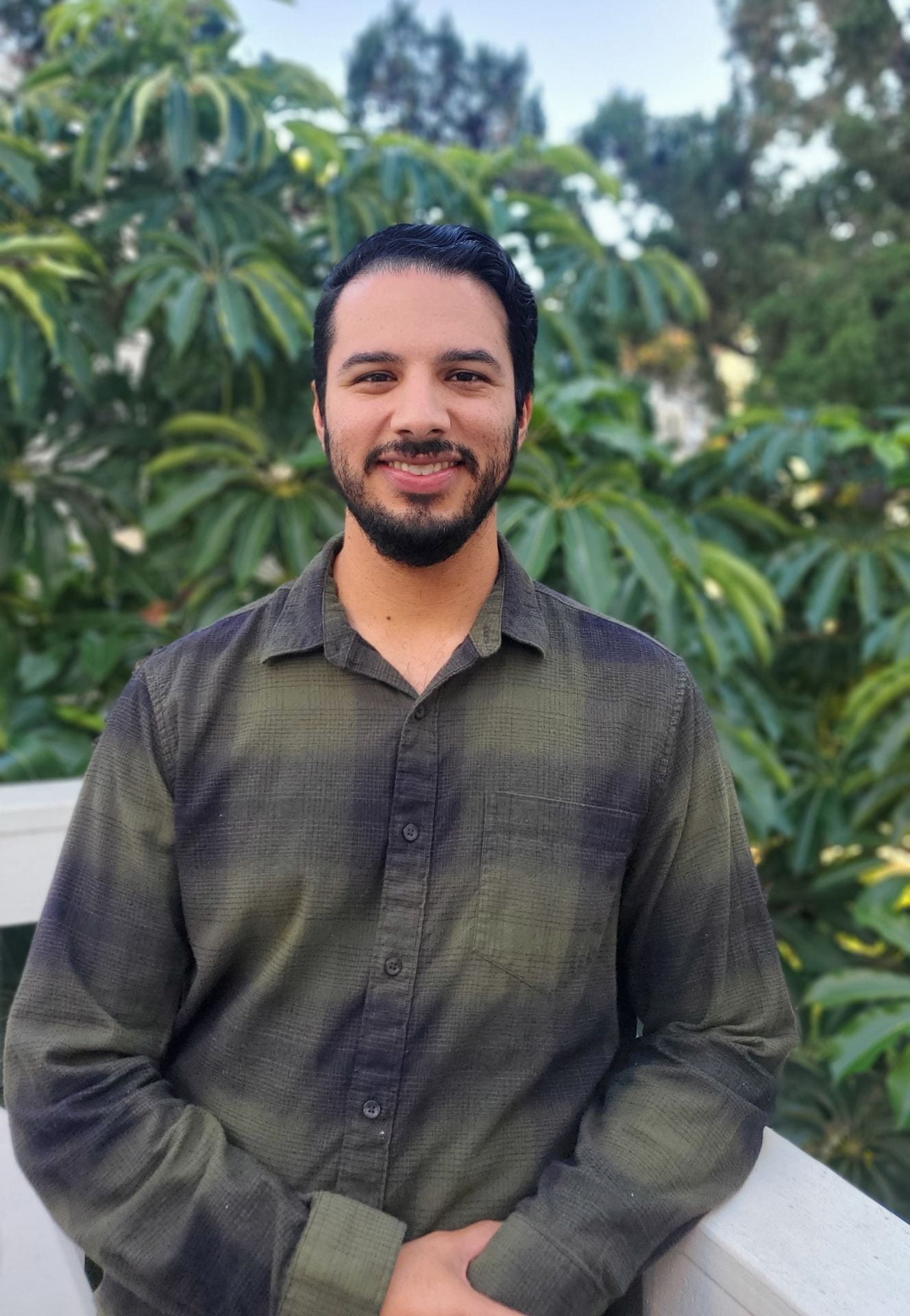
Jonathan Almguer
Major: English
Echoes and “Echo Chambers”
Biography:
What’s going on everyone! My name is Jonathan Almaguer and I am a 4th year English major. Some of my favorite things to do are playing guitar, and chatting with friends about theoretical concepts and ideas that don’t really have a true answer. I find that if we are not set on finding or arguing an ultimate conclusion, the resulting conversations tend to be a lot more fun! I plan to teach high school English in the future and my general love for teaching and discussion has led me to Uteach. The specific idea of working with echoes and “echo chambers, was inspired by many conversations with some professors here at UCI. In the beginning I was simply interested in the way soundbites and repetition functions in persuasive rhetoric. This lead me down a never-ending rabbit hole exploring all the different ways echoes function in both classical and literature, and finally all the way to mainstream media where I became well acquainted with the metaphor of “echo chambers.” In some ways, I am inviting all of you to join me on this journey. More significantly, I’d like to join each of you on your journey of exploring the many different versions and functions of echoes, and can’t wait to learn from my fellow students!
Course Description:
An acoustic echo chamber is an enclosed space used for its ability to allow a sound to continuously reflect off of the walls, creating a reverberating effect and reproducing the original sonic source multiple times. Kathleen Hall Jamieson, a communications professor at the University of Pennsylvania as well as a co-founder of FactCheck.org, transforms the acoustic echo chamber into a metaphorical echo chamber as the foundation for her analysis of the way media outlets enclose and reverberate messages. A pressing question, however, is what determines when echoing is helpful – such as creating a collective voice in order to create positive change – and when echoing becomes a substitution for individual thought? Although traditionally, the metaphor of the “echo chamber” has been reserved to describing political circles that shut themselves off from differing opinion, in this call we will explore the question: metaphor? Is expanding the metaphor of the “echo chamber” useful in helping us to understand the way ideas are perpetuated, maintained or even strengthened? Furthermore, we will be asking ourselves what are the potential dangers of applying a metaphor that fits imperfectly to any object it is trying to describe. How far can we expand this metaphor outside of the political arena? All the way to an individual level? Can the entrapments of an “echo chamber” exist within the confines of one’s own mind? Your input and discussion will be at the core of our entire course, and our goal will not be to simply answer these questions, but to explore them, discover whether or not these are important questions deserving of our time and energy.
Enrollment Information:
Time: TBC
Place: Online
Course Code: 87632
Faculty Mentor: Christopher Tzechung Fan
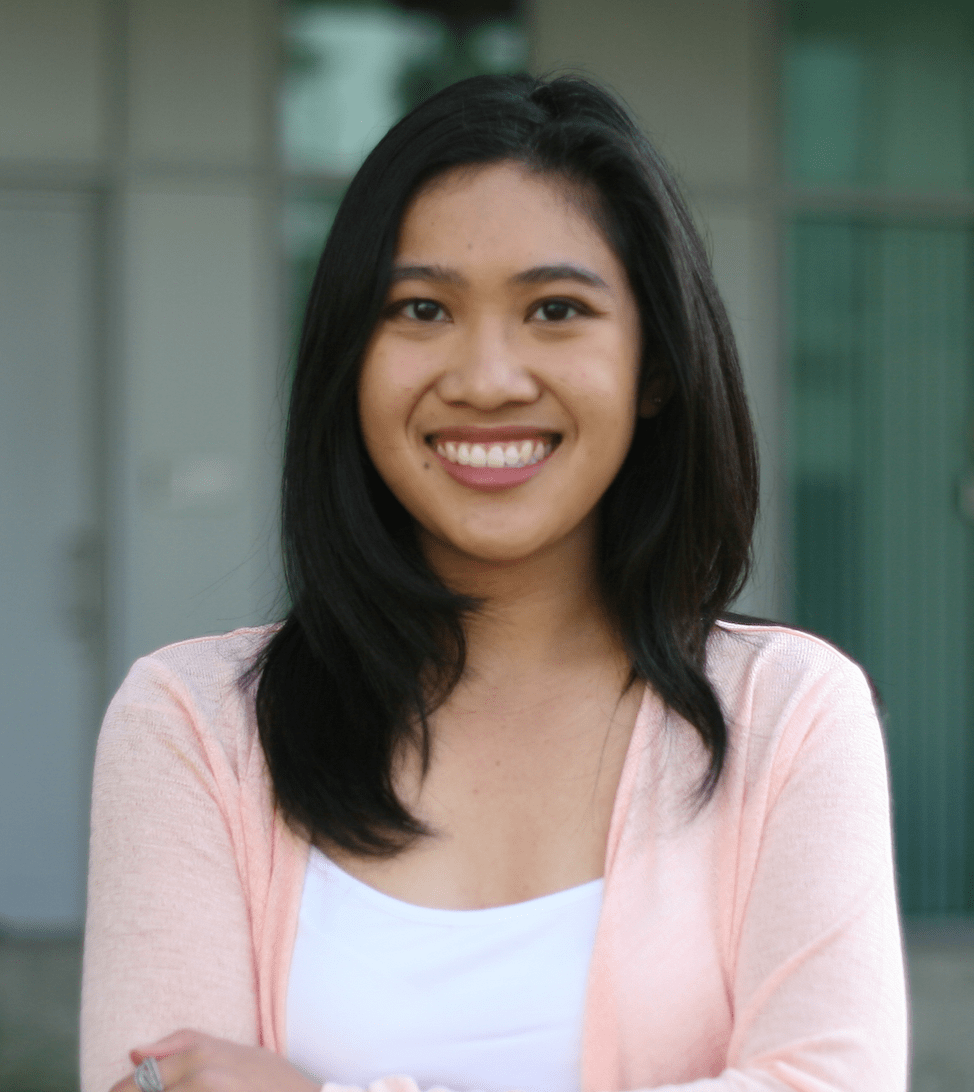
Catthi Ly
Major: Human Biology and Anthropology
The History and Philosophy of Cancer
Biography:
Hello all! My name is Catthi, and I’m a 4th year Human Biology and Anthropology double major. I’m so excited to be teaching you the Philosophy of Cancer in the spring! Cancer has always been extremely fascinating to me, and there’s simply so much that we don’t know. There’s so many unknowns when it comes to cancer, how it develops, and how we treat it. And while biology is really important to understand cancer, I also firmly believe that philosophy plays an important role as well. Besides UTeach, I serve as the student director of Global Health Research Education, and Translation, a Learning Assistant for the Human Biology series, a Bio 199 Student in the Neurosurgery Department at UCIMC, and as a student ambassador for the Women’s Health, Gender, and Empowerment Center of Expertise at the UC Global Health Institute. In my free, I love singing, playing piano, scrapbooking, and talking about Colombia’s bizarre hippo problem.
Course Description:
The oncologist Siddhartha Mukherjee refers to cancer as the Emperor of All Maladies. While modern medicine has been able to accomplish miraculous feats, cancer is still a disease that we have yet to effectively combat. In this class, we will go over the history of cancer and epistemic challenges that are pervasive in contemporary cancer research. We will explore cancer from the perspective of patients and the phenomenological experience of being a cancer patient.
Enrollment Information:
Time: TBC
Place: Online
Course Code: 87634
Faculty Mentor: Cailian O’Connor
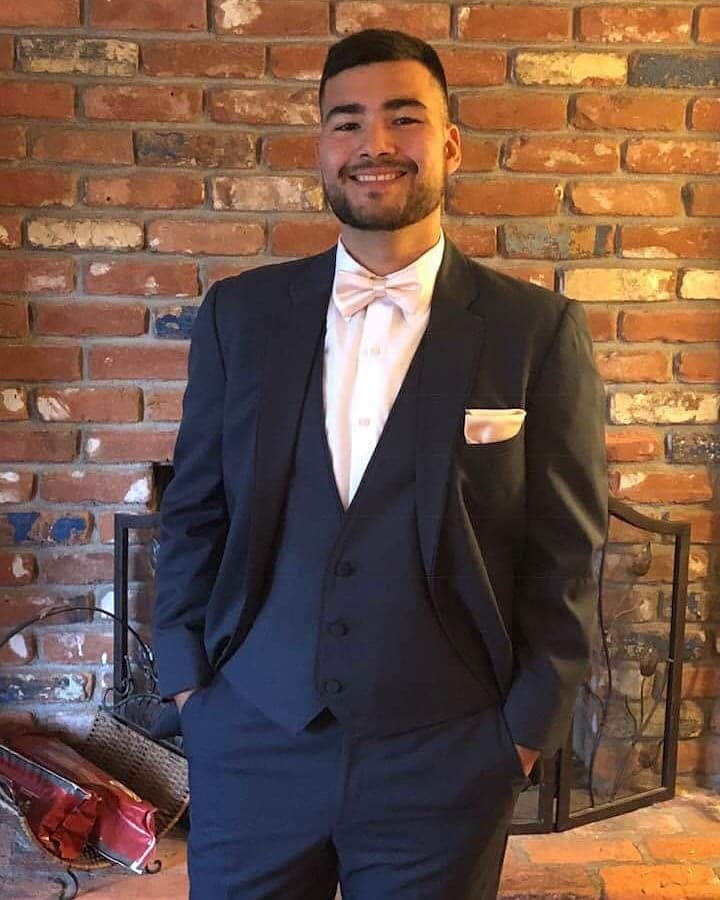
Raymond Rosales
Majors: History
Underworld Journeys: Classical and Medieval
Biography:
Hello, Hello! My name is Raymond Rosales or Ray for short. I am a third year History major with a wide range of interests from literature and language to cooking, wood working, hiking, skateboarding, and video games. You can find me skating around campus, hiking in OC’s beautiful trails, or online in some form or another where I’ll usually be playing a game, listening to a podcast, and reading at the same time. I look forward to discussing the weird and wonderful world of Medieval afterlife visions and sharing my terrible jokes.
Course Description:
Now more than ever, we desire to travel. As we cannot physically travel though, our only recourse is to travel through literature. This seminar will look at tales of travel to the underworld from the late classical period through the early medieval period. In these tales we will encounter a pagan world on the frontiers of change, heroes on the frontier of life and death, and an unrefined and mystical Christianity on the far frontiers of Europe. We will be joining a series of heroes as they travel across seas, into dreams, ethereal gateways, and the whole of the afterlife to gain knowledge of the world and themselves. We will follow alongside them, acting as co-traveler through Hell, Heaven, and sometimes Purgatory to see what insight we can gain ourselves!
Enrollment Information:
Time: TBC
Place: Online
Course Code: 87633
Faculty Mentor: Elizabeth Allen

 Ema Bidiwala
Ema Bidiwala Scott Hogan
Scott Hogan Kelly Liang
Kelly Liang Kevin Matson
Kevin Matson Melissa Mayr
Melissa Mayr Edie Montgomery-Pool
Edie Montgomery-Pool Troy Ortega
Troy Ortega Najmah Sadat
Najmah Sadat Jacky Schlegel
Jacky Schlegel Sarwat Siddiqi
Sarwat Siddiqi Vinny Tangherlini
Vinny Tangherlini Igii Enverga
Igii Enverga